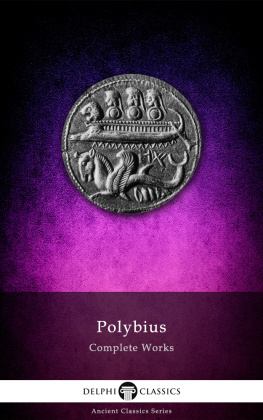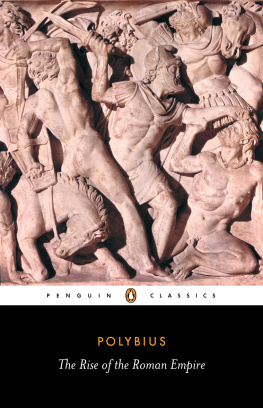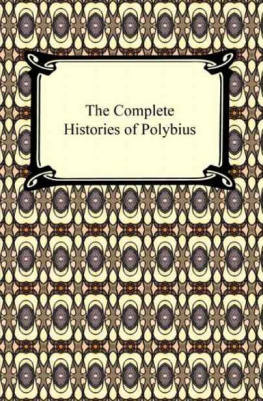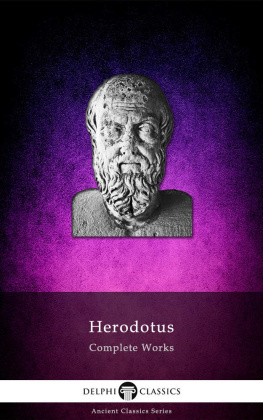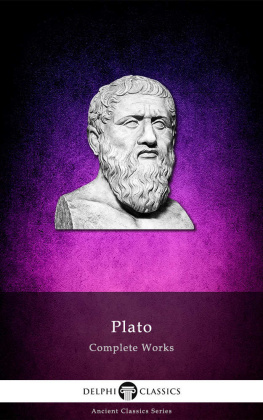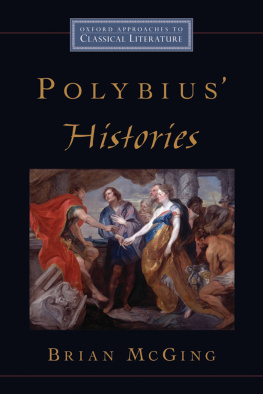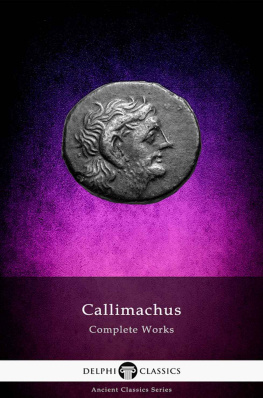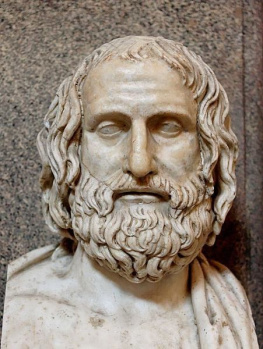Polybius - Delphi Complete Works of Polybius
Here you can read online Polybius - Delphi Complete Works of Polybius full text of the book (entire story) in english for free. Download pdf and epub, get meaning, cover and reviews about this ebook. year: 2014, publisher: Delphi Classics, genre: Art. Description of the work, (preface) as well as reviews are available. Best literature library LitArk.com created for fans of good reading and offers a wide selection of genres:
Romance novel
Science fiction
Adventure
Detective
Science
History
Home and family
Prose
Art
Politics
Computer
Non-fiction
Religion
Business
Children
Humor
Choose a favorite category and find really read worthwhile books. Enjoy immersion in the world of imagination, feel the emotions of the characters or learn something new for yourself, make an fascinating discovery.
Delphi Complete Works of Polybius: summary, description and annotation
We offer to read an annotation, description, summary or preface (depends on what the author of the book "Delphi Complete Works of Polybius" wrote himself). If you haven't found the necessary information about the book — write in the comments, we will try to find it.
Delphi Complete Works of Polybius — read online for free the complete book (whole text) full work
Below is the text of the book, divided by pages. System saving the place of the last page read, allows you to conveniently read the book "Delphi Complete Works of Polybius" online for free, without having to search again every time where you left off. Put a bookmark, and you can go to the page where you finished reading at any time.
Font size:
Interval:
Bookmark:

The Complete Works of
POLYBIUS
(200 BC c. 118 BC)

Contents

Delphi Classics 2014
Version 1

The Complete Works of
POLYBIUS

By Delphi Classics, 2014

Megalopolis, a town in southwestern Arcadia Polybiuss birthplace

Translated by Evelyn S. Shuckburgh
Though originally composed of 40 books, only the first five books of Polybius The Histories are extant in their entirety, having been mostly passed down from collections kept in libraries in Byzantium. Polybius begins his great work in the year 264 BC and finishes in 146 BC. His primary concern, aside from the exact presentation of pragmatic history, is the 53 years in which Rome became a dominant world power, exploring precisely how and why the Romans spread their power as they did, describing the rise of the Republic, the destruction of Carthage and the eventual domination of the Greek world. In spite of its incomplete state, The Histories is a vital achievement, offering many valuable original sources.
Of chief interest in the work is the period 220 BC to 167 BC, which witnesses Rome subjugating Carthage and becoming the dominant Mediterranean power. Books I to V deal extensively with the first and second Punic Wars, whilst Book VI describes the constitution of the Romans, outlining the powers of the consuls, senate and people. Polybius comes to the conclusion, by virtue of his Hellenistic attitude, that the Romans are so successful due to how their constitution is mixed. Therefore, Polybius is notable for his systematic study of Romes rise to power, as well as being useful in assessing the Hellenistic manner of writing and as a window into this Hellenistic period.
A key theme of The Histories is the good statesman, acting as virtuous and composed. The character of the Polybian statesman is exemplified in the person of Philip II. His beliefs as to the character of a good statesman led Polybius to reject the historian Theopompus description of Philips private, drunken debauchery. For Polybius, it was inconceivable that such an able and effective statesman could have had an immoral and unrestrained private life as described by Theopompus.
Other important themes running throughout the work are the role of Fortune in the affairs of nations, Polybius insistence that history should be demonstratory, or apodeiktike, providing lessons for statesmen, and that historians should be men of action (pragmatikoi).
Polybius is considered by some to be the successor of Thucydides in terms of objectivity and critical reasoning, and the forefather of scholarly, painstaking historical research in the modern scientific sense. According to this view, his work sets forth the course of historys occurrences with clearness, penetration, sound judgment, and among the circumstances affecting the outcomes, lays especial emphasis on the geographical conditions. Modern historians are especially impressed with the manner in which Polybius used his sources and in particular documents, his citation and quotation of his sources. Moreover, there is much appreciation of Polybiuss meditation on the nature of historiography in Book 12. His work belongs, therefore, amongst the most learned and unbiased productions of ancient historical writing.

Philip II of Macedon was a king of Macedon from 359 BC until his assassination in 336 BC. He was the father of Alexander the Great. Polybius portrays him as the ideal statesman in The Histories.

Milazzo (ancient Mylae), a town in the province of Messina, Sicily. The Battle of Mylae took place in 260 BC during the First Punic War and was the location of first naval battle between Carthage and the Roman Republic. This battle marked Romes first naval triumph and also the first use of the corvus.

Diagram displaying the corvus (crow) the Roman military boarding device used in naval warfare during the First Punic War against Carthage, which is famously described by Polybius in the first book.
CONTENTS

Hannibal, son of Hamilcar Barca, (247 c. 183 BC) was a Punic Carthaginian military commander, generally considered one of the greatest military commanders in history. He features as a prominent figure in Polybius The Histories.

Monument at ancient Cannae. The Battle of Cannae was a major conflict of the Second Punic War, which took place on 2 August 216 BC in Apulia in southeast Italy. The army of Carthage under Hannibal decisively defeated a larger army of the Roman Republic under the consuls Lucius Aemilius Paullus and Gaius Terentius Varro. It is regarded both as one of the greatest tactical feats in military history and as one of the worst defeats in Roman history. The battle is narrated in Book III.

Publius Cornelius Scipio Africanus (236183 BC) was a general in the Second Punic War and statesman of the Roman Republic. He was best known for defeating Hannibal at the final battle of the Second Punic War at Zama, which earned him the agnomen Africanus, as well as recognition as one of the finest commanders in military history.
TO
F. M. S.
IN GRATITUDE FOR MUCH PATIENT HELP
PREFACE
This is the first English translation of the complete works of Polybius as far as they are now known. In attempting such a task I feel that I ought to state distinctly the limits which I have proposed to myself in carrying it out. I have desired to present to English readers a faithful copy of what Polybius wrote, which should at the same time be a readable English book. I have not been careful to follow the Greek idiom; and have not hesitated to break up and curtail or enlarge his sentences, when I thought that, by doing so, I could present his meaning in more idiomatic English. Polybius is not an author likely to be studied for the sake of his Greek, except by a few technical scholars; and the modern complexion of much of his thought makes such a plan of translation both possible and desirable. How far I have succeeded I must leave my readers to decide. Again, I have not undertaken to write a commentary on Polybius, nor to discuss at length the many questions of interest which arise from his text. Such an undertaking would have required much more space than I was able to give: and happily, while my translation was passing through the press, two books have appeared, which will supply English students with much that I might have felt bound to endeavour to give the Achaean league by Mr. Capes, and the sumptuous Oxford edition of extracts by Mr. Strachan-Davidson.
Next pageFont size:
Interval:
Bookmark:
Similar books «Delphi Complete Works of Polybius»
Look at similar books to Delphi Complete Works of Polybius. We have selected literature similar in name and meaning in the hope of providing readers with more options to find new, interesting, not yet read works.
Discussion, reviews of the book Delphi Complete Works of Polybius and just readers' own opinions. Leave your comments, write what you think about the work, its meaning or the main characters. Specify what exactly you liked and what you didn't like, and why you think so.

